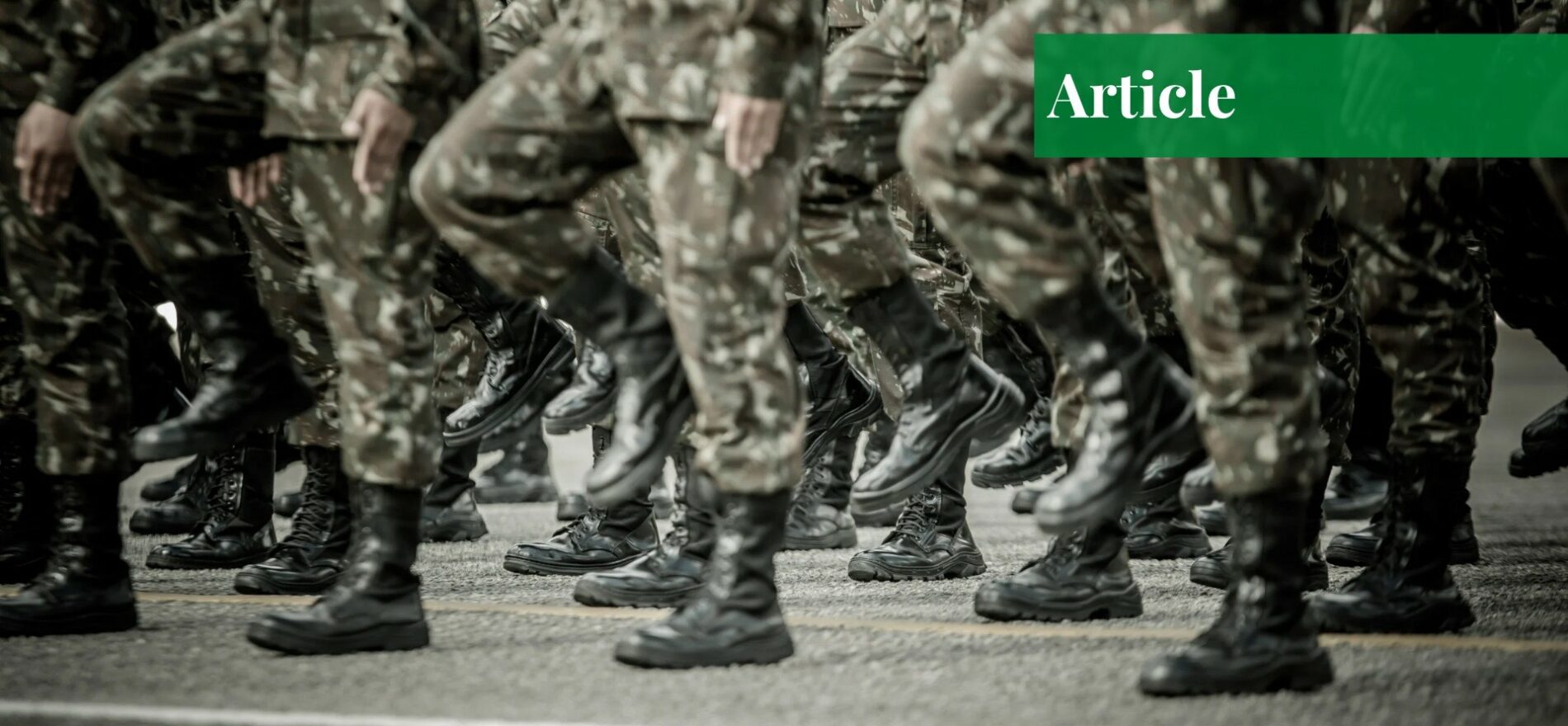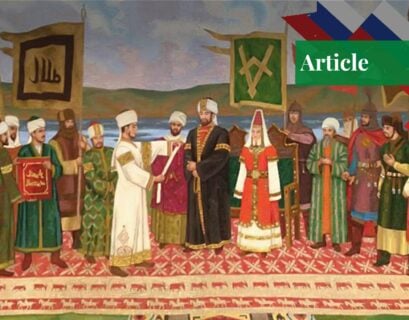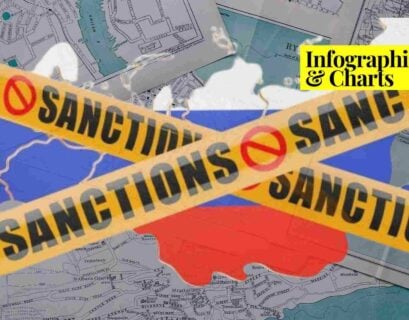What is the Wagner Group?
Businessman Yevgeny Prigozhin along with Dmitry Utkin anonymously created a Russian-based organization of mercenaries in 2014, named the “Wagner Group.” The story behind this group is not as simple as it may seem. This group became well known on the turf of private military companies (PMCs) in recent years. Due to its involvement in several conflicts, operations, and geopolitical riots, and right after the occupation of Crimea, it gained a massive amount of attraction and became a source of several covert missions.

The founder of this group still remains anonymous, but mostly the arrows are pointed toward former Russian military intelligence officer Dmitry Utkin. Because of his first-hand experience in the Russian special forces, he knew all about the missions and plans; so, it was seemingly easy for him to carry on with Prigozhin’s private military contract group than an outsider with no experience.
The Services and Operations
Wagnerites aka the group’s agents are highly trained military experts known for their combating spirit and security services. It is considered that the Russian Wagner Group provided its services during the time of the rise in conflicts in the far and wide areas of Syria, Ukraine, Libya, Sudan, and the Central African Republic. It provided combat training, and security services along with advising support. The PMC has also been accused of sponsoring disinformation campaigns against the US via the Internet Research Agency (IRA) and the Association for Free Research and International Cooperation (AFRIC). In 2021, the US imposed sanctions on both of these associations for their alleged involvement in the 2016 US elections and for working with the Russian Wagner Group.
The Wagner Group has been accused of carrying out clandestine operations for the Russian government in Syria, Ukraine, and Africa. Though the PMC has denied its involvement in Sudan, its traces are apparent in other Middle Eastern and African states. In Mali, after a coup in 2021, the new government entered into a direct contract with Wagner and is paying approximately $10.8 million per month for their services. It has claimed that the group is merely helping to suppress the insurgents threatening to destabilize the state.
The Wagner Group has also maintained its presence in the Central African Republic since 2018. As per Russia’s ambassador to CAR, there are 1,890 “Russian instructors” currently present in the state. The US has accused the group of exploiting the gold mines in Mali and the Central Asian Republic and proscribed several companies that “fund” the group through illicit mining.

The Russian Wagner Group mercenaries had even made their way to Mozambique where they were deployed to fight the Islamic State in 2019. Unlike the other states where it still retains its presence, the group was forced to withdraw from Mozambique after a few months when it failed to suppress the terrorist group. The same cannot be said in the case of Libya where Wagner has been actively involved since 2019, working in concert with Khalifa Haftar’s Libyan National Army (LNA). The mercenaries aided Haftar in his attack on the capital, Tripoli in the same year.
During its missions there, it has been alleged that the PMC has set up traps and antipersonnel landmines throughout Tripoli. Since the landmines are triggered by proximity or contact, they’re unable to differentiate between civilians and combatants, making them a violation of international humanitarian law. Human Rights Watch reports that between 2020-2022, these mines claimed the lives of 130 people and wounded 196, most of which were civilians.
The Wagner Group has consolidated itself around Libyan military bases and oil facilities. In recent years, the number of Wagner’s Russian mercenaries and Syrian recruits has reached 2,000 despite Russia’s decision to draw down its deployments to focus on Ukraine. The presence of the Wagner Group in Syria, Ukraine, and many other countries has been a source of conflict and uneasiness as it impacts broader regional dynamics.
Syria has been a rollercoaster ride for the group as it was critical for them to fight alongside the Syrian government forces. Wagner has been working as Russia’s proxy to support the regime of Bashar al-Assad in Syria since 2015. It has been engaged in combat and in providing security to oil installations in the state. The Wagner group took part in a massive military operation against ISIL cells in the Syrian desert in December 2021. However, since Prigozhin’s decision to march to Moscow, Russia and Syria have cracked down on the mercenaries in Syria. The mercenaries have been given the option to either sign “new contracts with the Russian defense ministry or promptly leave Syria” in an effort to prevent the rebellion from spreading outside of Russia.
The Wagner Group exemplifies the shifting landscape of private military businesses. As the need for their services grows, new actors and entities may emerge, bringing with them additional complexities and quandaries. Since 2017, the Wagner Group has reached far and wide and the number of its mercenaries has significantly increased owing to the recruitment of Russian convicts. Almost an amount of five thousand members were stationed in different places in Africa at the time of its formation. Yet, at the end of 2022, it grew to an amount of 20,000-50,000 members worldwide.
Financing and Connections
The Wagner Group’s power is far beyond the limitations of any other private mercenary group as they exceed and operate beyond the laws in Russia. Any other group working in this framework is largely forbidden. It is nearly impossible to hold the group accountable in its present state as it lacks transparency in its work.
The Wagner Group’s operations highlight the changing nature of modern warfare and the increasing reliance on PMCs. Private military corporations offer flexibility, camouflage, and specialized capabilities, making them enticing options for states seeking to achieve their objectives with minimal direct involvement. The Wagner Group’s problems show the significance of a strong regulatory framework and international control of private military contractors. Addressing legal and accountability gaps is crucial to maintaining transparency, compliance with international law, and human rights protection in PMC conflicts.
The funding and connection of the Wagner Group remains a mystery till now as no one really knows who’s supporting an organization of this repute and status. One thing that is pretty much evident is the relationship between the Wagner Group and the Russian state. Due to this reason negative tension is being created in the relations of Russia with other Western countries. The diplomatic relations are vulnerable and Russia is accused of interfering and destroying the sovereignty of other states as well.
The alleged Wagner Group acts have aroused worries and controversy around the world. In reaction to the problems caused by PMCs, calls for increased transparency, regulation, and accountability have been made. Finding common ground on these issues, however, remains a challenging and continuing task.
Implications for State Sovereignty
The Wagner Group and comparable PMCs’ activities throw state sovereignty into question. The involvement of non-state actors in conflicts raises concerns about the traditional understanding of state responsibility and control over military operations, presenting a debate over the limits and borders of state sovereignty. The Wagner Group’s activities have increased calls for tighter regulation and control of PMCs. Clearer legal frameworks and rigorous monitoring mechanisms, according to advocates, are crucial to preventing abuses, defending human rights, and ensuring stability in conflict zones.
Role of Media & Civil Society
The media and civil society play essential roles in bringing private military businesses’ conduct to light. Investigative media, research, and advocacy efforts are vital in holding these firms accountable, raising awareness, and encouraging responsible business practices. The role of the media is to construct a top-notch recruitment drive for the Wagnerites. Research published by Logically claimed that along with the Russian language, there are almost 16 different languages, like Vietnamese and Polish, in which recruitment information is provided by the Wagner Group on social media.
One important feature is that Wagner is super active on social media platforms like Twitter and Facebook. In its social media posts, the target is the underprivileged group and the posts boast that Wagner’s fighters can make up to 24,000 rubles (2,700 euros) a month. Also, in Spanish, they posted a long list of benefits, including so-called “life insurance”, that one can get from joining such a group. So, it is evident that media is serving as established propaganda for the fulfillment of several profound purposes.
The Wagner Group’s rise to prominence highlights the likelihood of future conflicts relying more heavily on PMCs. Private military contractors are projected to continue to play a major role in warfare as geopolitical factors evolve, necessitating ongoing conversations about their regulation, accountability, and ethical behavior. Promoting transparency and openness within the private military industry is crucial for resolving concerns about firms like the Wagner Group.

Encourage firms to comply with voluntary reporting obligations, reveal their actions, and work with worldwide monitoring systems to improve accountability and responsible behavior. To address the challenges faced by private military contractors, collaboration and multilateral initiatives are required. To successfully monitor and oversee the operations of PMCs, governments, international organizations, and civil society must work together to establish common standards, exchange information, and coordinate actions.
The Wagner Group Revolt
The Wagner Group played a huge role in Russia’s annexation of Crimea in 2014 and then again in the ongoing war on Ukraine. It acted as a force amplifier that helped Russia in the formation of separatist groups in Ukraine and further invasions. The Wagner Group was crucial in Russia gaining control of the Bakhmut. Evidence of this can be found in the claim of Yevgeny Prigozhin that he had recruited 50,000 mercenaries for the Ukraine war. However, 20,000 of them reportedly died in the battle for Bakhmut alone.
On June 23rd, Prigozhin released a video criticizing Russian Minister of Defence Sergei Shoigu and Chief of the General Staff Valery Gerasimov. He rejected Putin’s justification for invading Ukraine and deemed the Russian military corrupt, declaring a “march for justice” to Moscow. In response to this, Russia’s FSB charged Prigozhin with treason and the march was declared an armed mutiny against the Russian state. On the 24th of June, Prigozhin moved towards Rostov-on-Don along with 5,000 Wagner troops.
In a televised address, President Putin called this march an “armed mutiny” which he will crush and accused the Wagner leader of stabbing the state in the back. He called for the Wagner mercenaries to surrender in return for amnesty. He further signed a law that would subject those who break martial law – imposed in some cities – to 30 days of detention. From Rostov, the armed group moved towards Moscow, but halfway through, Russian military helicopters opened fire on the rebels. The revolt led to international speculation about Putin’s leadership and his weakness in safeguarding his own territory.
Before the matter could get out of hand, it was stopped in the middle because of a deal between Kremlin and Wagner brokered by the Belarusian leader Alexander Lukashenko. As per the agreement, no charges would be pressed against Prigozhin and he will live in Belarus. As for the Wagner mercenaries, those who did not participate in the revolt would be offered new contracts with the Defense Ministry whereas, the rest would not be prosecuted.
After the failed revolt, little was known about Prigozhin’s whereabouts, but after five days, he was seen attending a conference about the future prospects of the group. Recently, video footage emerged from Tsel, a base camp in the south of Russia, in which he was seen training the Wagnerites. The Wagner Group has currently made itself unavailable from any sort of contact with any conflict and is in hibernating mode.
Conclusion
The Wagner Group is a problematic private military company that has provoked intense debates about the role of PMCs in current conflicts. Concerns have been raised about its alleged involvement in various crises and geopolitical actions, as well as its impact on international relations. Its continuous involvement in Libya, Syria, Ukraine, and Africa has been a sign of Russian adventurism, one that’s costing people their lives. With the war in Ukraine raging on, the role of the PMC in committing war crimes has come under fire. It has led to new debates over the accountability of private military groups and non-state proxies. As the private military contracting environment evolves, it is vital to address the challenges raised by organizations such as the Wagner Group.
If you want to submit your articles, research papers, and book reviews, please check the Submissions page.
The views and opinions expressed in this article/paper are the author’s own and do not necessarily reflect the editorial position of Paradigm Shift.



















